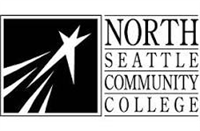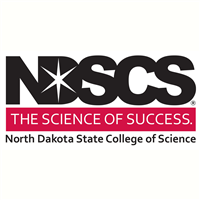What do they do?
Repair and service bicycles.
Also known as:
Bicycle Fitter, Bicycle Mechanic, Bicycle Repair Technician, Bicycle Repairman, Bicycle Service Technician, Bicycle Technician, Bike Mechanic
-
0%
Change
Ranks #37 in job growth rate20Job Openings
Ranks #28 in net job growth
Looking for colleges that offer a specific major? Use the College Match Tool to find your best-matched schools and discover your estimated Net Price!
- High school diploma equivalent (45%)
- Less than high school diploma (21%)
- Some college, no degree (17%)
- Associate's degree (8%)
- Bachelor's degree (7%)
- Master's degree (1%)
- Doctorate or Professional Degree (<1%)
People in this career often have these skills:
- Repairing - Repairing machines or systems using the needed tools.
- Active Listening - Giving full attention to what other people are saying, taking time to understand the points being made, asking questions as appropriate, and not interrupting at inappropriate times.
- Critical Thinking - Using logic and reasoning to identify the strengths and weaknesses of alternative solutions, conclusions, or approaches to problems.
- Troubleshooting - Determining causes of operating errors and deciding what to do about it.
- Speaking - Talking to others to convey information effectively.
- Service Orientation - Actively looking for ways to help people.
- Equipment Selection - Determining the kind of tools and equipment needed to do a job.
- Equipment Maintenance - Performing routine maintenance on equipment and determining when and what kind of maintenance is needed.
People in this career often know a lot about:
- Mechanical - Knowledge of machines and tools, including their designs, uses, repair, and maintenance.
- Customer and Personal Service - Knowledge of principles and processes for providing customer and personal services. This includes customer needs assessment, meeting quality standards for services, and evaluation of customer satisfaction.
- Sales and Marketing - Knowledge of principles and methods for showing, promoting, and selling products or services. This includes marketing strategy and tactics, product demonstration, sales techniques, and sales control systems.
- English Language - Knowledge of the structure and content of the English language including the meaning and spelling of words, rules of composition, and grammar.
- Administration and Management - Knowledge of business and management principles involved in strategic planning, resource allocation, human resources modeling, leadership technique, production methods, and coordination of people and resources.
- Engineering and Technology - Knowledge of the practical application of engineering science and technology. This includes applying principles, techniques, procedures, and equipment to the design and production of various goods and services.
People in this career often have talent in:
- Visualization - The ability to imagine how something will look after it is moved around or when its parts are moved or rearranged.
- Finger Dexterity - The ability to make precisely coordinated movements of the fingers of one or both hands to grasp, manipulate, or assemble very small objects.
- Near Vision - The ability to see details at close range (within a few feet of the observer).
- Arm-Hand Steadiness - The ability to keep your hand and arm steady while moving your arm or while holding your arm and hand in one position.
- Manual Dexterity - The ability to quickly move your hand, your hand together with your arm, or your two hands to grasp, manipulate, or assemble objects.
- Problem Sensitivity - The ability to tell when something is wrong or is likely to go wrong. It does not involve solving the problem, only recognizing that there is a problem.
- Information Ordering - The ability to arrange things or actions in a certain order or pattern according to a specific rule or set of rules (e.g., patterns of numbers, letters, words, pictures, mathematical operations).
- Oral Expression - The ability to communicate information and ideas in speaking so others will understand.
- Speech Clarity - The ability to speak clearly so others can understand you.
- Oral Comprehension - The ability to listen to and understand information and ideas presented through spoken words and sentences.
- Speech Recognition - The ability to identify and understand the speech of another person.
People in this career often do these activities:
- Install vehicle parts or accessories.
- Adjust vehicle components according to specifications.
- Explain technical product or service information to customers.
- Align equipment or machinery.
- Assemble mechanical components or machine parts.
- Sell products or services.
- Perform basic equipment maintenance.
- Order materials, supplies, or equipment.
- Disassemble equipment for maintenance or repair.
- Paint surfaces or equipment.
- Grind parts to required dimensions.
- Repair tires.
- Operate welding equipment.
This page includes data from:

 Occupation statistics: USDOL U.S. Bureau of Labor Statistics Occupational Employment Statistics
Occupation statistics: USDOL U.S. Bureau of Labor Statistics Occupational Employment Statistics
 Videos: CareerOneStop, USDOL/ETA and the Minnesota Department of Employment & Economic Development
Videos: CareerOneStop, USDOL/ETA and the Minnesota Department of Employment & Economic Development








